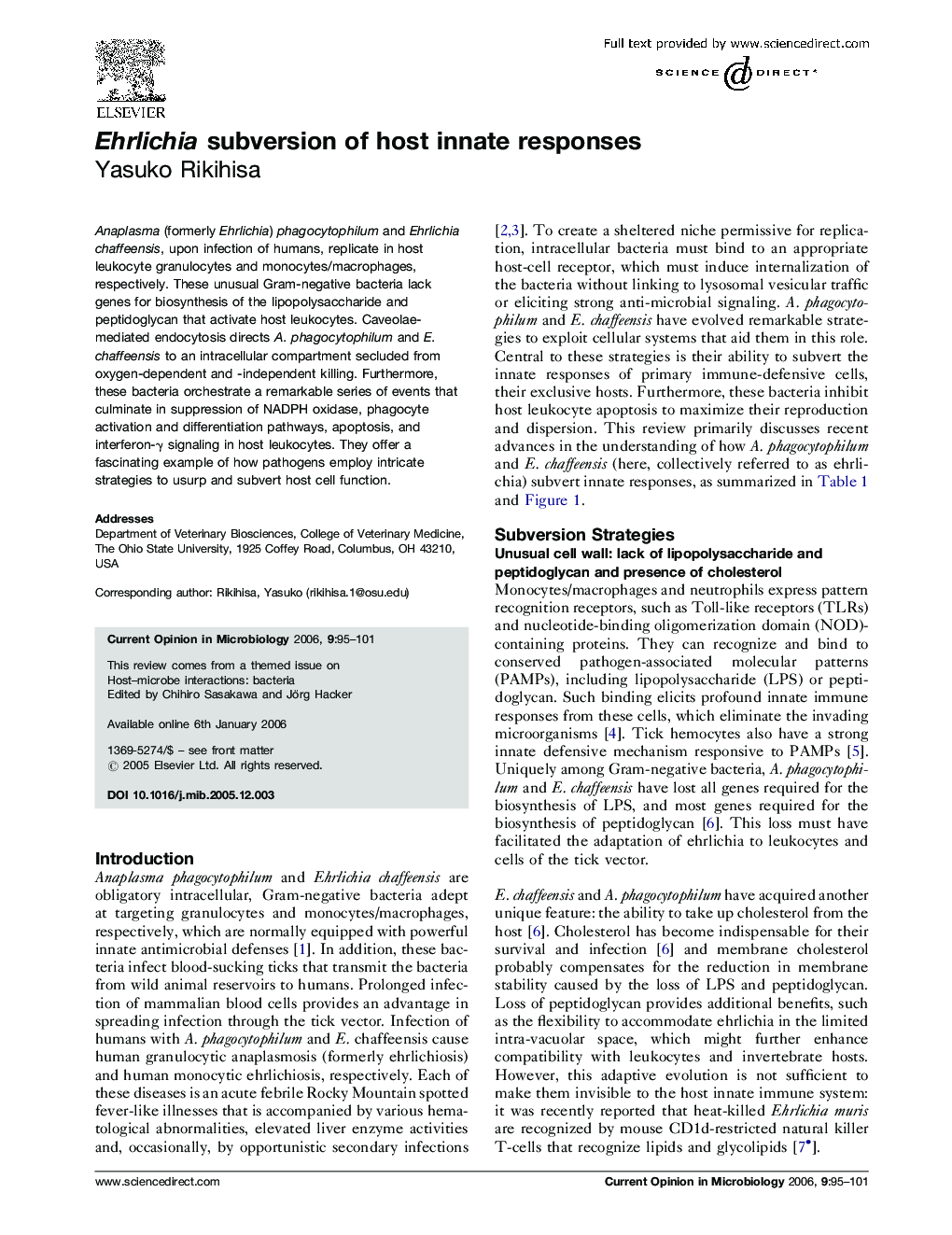| Article ID | Journal | Published Year | Pages | File Type |
|---|---|---|---|---|
| 3399786 | Current Opinion in Microbiology | 2006 | 7 Pages |
Anaplasma (formerly Ehrlichia) phagocytophilum and Ehrlichia chaffeensis, upon infection of humans, replicate in host leukocyte granulocytes and monocytes/macrophages, respectively. These unusual Gram-negative bacteria lack genes for biosynthesis of the lipopolysaccharide and peptidoglycan that activate host leukocytes. Caveolae-mediated endocytosis directs A. phagocytophilum and E. chaffeensis to an intracellular compartment secluded from oxygen-dependent and -independent killing. Furthermore, these bacteria orchestrate a remarkable series of events that culminate in suppression of NADPH oxidase, phagocyte activation and differentiation pathways, apoptosis, and interferon-γ signaling in host leukocytes. They offer a fascinating example of how pathogens employ intricate strategies to usurp and subvert host cell function.
